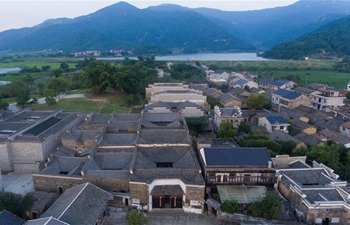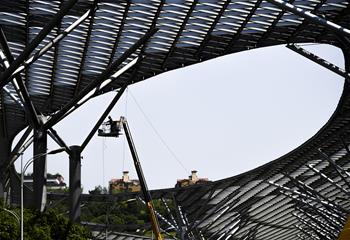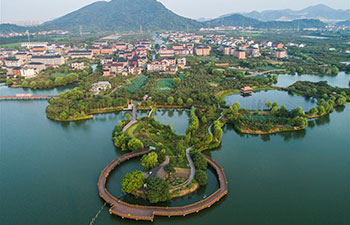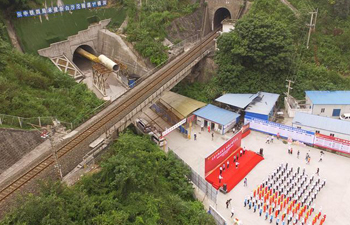
The photo taken on Aug. 4, 2019 shows ceramics found by archaeologists inside of tombs unearthed at the Aidonia cemetery in Nemea, Peloponnese peninsula, Greece. Two intact tombs dating back to 1,400-1,200 BC were unearthed by archaeologists in the region of Nemea in the Peloponnese peninsula at the Aidonia cemetery, shedding more light on the Mycenaean civilization, the Greek Culture Ministry announced on Sunday. (Hellenic Ministry of Culture and Sports/Handout via Xinhua)
ATHENS, Aug. 11 (Xinhua) -- Two intact tombs dating back to 1,400-1,200 BC were unearthed by archaeologists in the region of Nemea in the Peloponnese peninsula at the Aidonia cemetery, shedding more light on the Mycenaean civilization, the Greek Culture Ministry announced on Sunday.
The tombs contained remains of 19 burials as well as ceramics and other small objects which will help scholars better understand the development of the ancient settlement and its ties to neighbors, read the emailed press statement from the ministry.
Located next to Nemea's vineyards, Aidonia was a key settlement of the Mycenaean civilization which flourished in the 17th-12th century BC, the press statement noted.
The cemetery was extensively looted in the winter 1976-1977, just before archaeologists uncover a complex of 20 chamber tombs carved in the rock.
The finds in a pit inside one of these tombs helped experts link them to a set of jewelry that was about to be sold in an auction house in New York in 1993 and was eventually repatriated, the ministry stressed.
The latest round of excavations launched in 2016 has brought to light another series of tombs with remarkable finds.











